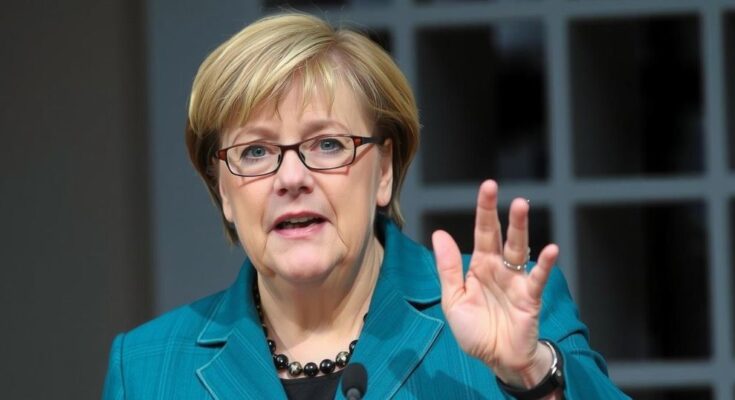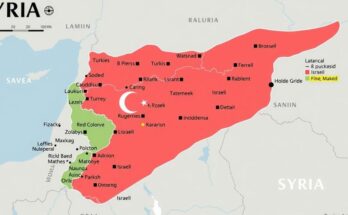German President Frank-Walter Steinmeier has dissolved parliament, setting February 23 for new elections following the collapse of Chancellor Olaf Scholz’s government. He emphasized the importance of political stability and respect during the upcoming campaign, warning against foreign influence and the hazards of hatred and violence. The new government will face significant challenges, including economic instability and immigration debates, while Scholz continues as caretaker chancellor.
On Friday, German President Frank-Walter Steinmeier officially dissolved the parliament, announcing February 23 as the date for the forthcoming early general election, triggered by the recent collapse of Chancellor Olaf Scholz’s coalition government. The fall of Scholz’s administration stemmed from internal conflicts regarding strategies to rejuvenate Germany’s economy. Furthermore, ongoing public discourse surrounding safety and immigration was reignited following a tragic vehicular attack at a Christmas market last week.
In his announcement, President Steinmeier underscored the crucial necessity of political stability during this electoral period and urged that the campaign be held with respect, decency, and transparency. He expressed particular concern regarding external influences, specifically highlighting the increased foreign interference on social media platforms like X, which is linked to Elon Musk. Steinmeier proclaimed, “Hatred and violence must have no place in this election campaign, nor denigration or intimidation… all this is poison for democracy.”
Additionally, he called attention to the multifaceted challenges that the incoming government will need to tackle, including economic instability, geopolitical conflicts, and pressing issues related to immigration and climate change. Until a new government is established, Chancellor Scholz will continue to serve in his role as caretaker chancellor, a process that may extend over several months.
The dissolution of the German parliament and the subsequent announcement of a new election date stem from significant political turmoil resulting from the recent collapse of the ruling coalition led by Chancellor Olaf Scholz. Germany, being Europe’s largest economy, faces substantial challenges including economic instability, security concerns, and debates around immigration policies. These issues have been exacerbated by recent events such as violent attacks and ongoing regional conflicts, which have shifted public focus toward safety and governance.
In conclusion, the recent dissolution of the German parliament by President Steinmeier marks a pivotal moment in the country’s political landscape as it prepares for elections on February 23. The emphasis on political stability and integrity during the election campaign highlights the challenges posed by external influences and societal tensions. As Chancellor Scholz remains a caretaker leader, the next government will inherit critical issues that must be addressed to steer Germany forward amidst a complex backdrop of domestic and international challenges.
Original Source: www.barrons.com




